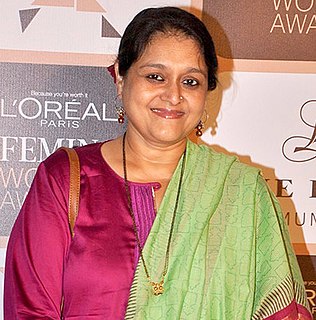Цитата Стивена Моффата
Моя проблема в том, что аудитория более грамотна, чем когда-либо. Во времена Шекспира вы, вероятно, ожидали увидеть пьесу один или два раза в жизни; сегодня вы сталкиваетесь с четырьмя или пятью видами фантастики каждый день. Поэтому оставаться впереди публики невозможно.
Связанные цитаты
Я в большем восторге от короткометражного рассказа, чем ожидал. Я находил больше удовольствия в чтении коротких рассказов, чем раньше. Видя, какие виды мышления используются в короткометражных произведениях. Меня также удивила паника, которую я испытал, особенно поначалу, когда мы решили решить одну проблему, а затем поняли, что нам нужно решить еще одну.
В каком-то смысле я провожу больше времени за документальной литературой, потому что нужно собрать воедино много разных тем. Но научно-популярная литература больше размышляет, чем иммерсивно. Проблема с фантастикой иногда заключается в том, что вам нужно покинуть реальный мир, чтобы попасть в вымышленный. И это занимает так много времени, так долго укладывается в голове?.?.?.?Не знаю, я просто чувствую себя менее склонным к этому в эти дни и более склонным оставаться в своей собственной жизни. Мне нравится действительно хорошая художественная литература, но становится все труднее удерживать мое внимание на романе.
Знаешь, ты делаешь одно и то же шоу каждый день, и твое вдохновение, ты не должен смотреть дальше того факта, что ты знаешь, что люди едут через всю страну, чтобы увидеть тебя. Во многих случаях это единственный шанс публики увидеть это, и вот что заставляет вас вставать по утрам и показывать лучшее выступление на сцене — это осознание того, что публика готова к этому. это, и здесь, чтобы получить опыт, и поэтому в свою очередь вы.
Когда вы играете в небольшом, более интимном зале, вы можете вести настоящие беседы со своей аудиторией, рисковать и оставаться в курсе событий. Вы также можете изменить сет-лист в зависимости от того, как проходит день или как реагирует публика. Когда вы делаете шоу на арене, каждая арена выглядит и ощущается одинаково. Вы не можете видеть, кто находится в комнате.
Одна из вещей на очень практическом уровне, как актера или актрисы, заключается в том, что когда вы ставите пьесу, вы каждый раз делаете всю историю целиком. У вас восемь концертов в неделю. У вас есть репетиционный процесс от четырех до пяти-шести недель. А потом, как только ты выступаешь, все остальные уходят, и ты остаешься там со своими коллегами-актерами и публикой, и материал, и твоя жизнь становится об этом. И вы проходите историю от начала до конца каждый раз, когда вы это делаете, и в зависимости от того, как долго вы это делаете, вот где появляется мастерство.
Зрители сегодня слышали каждую шутку. Они знают каждый сюжет. Они знают, куда вы идете, еще до того, как вы начнете. Это тяжелая аудитория, которую трудно удивить, и тяжелая аудитория, для которой нужно писать. Сейчас конкуренция намного выше, потому что аудитория намного больше, я бы сказал, более искушенная.
Зрители сегодня слышали каждую шутку. Они знают каждый сюжет. Они знают, куда вы идете, еще до того, как вы начнете. Это тяжелая аудитория, которую трудно удивить, и тяжелая аудитория, для которой нужно писать. Сейчас конкуренция намного выше, потому что аудитория намного больше, я хочу сказать, «искушенная».
Я не отвечаю на телефонные звонки и не отвечаю на электронную почту; Я ничего не делаю, пока не закончу дневную работу. У меня есть количество слов на каждый день: 500 для художественной литературы, 1000 для документальной литературы и 1500 для журналистики. Это уровень, который я могу поддерживать.




































